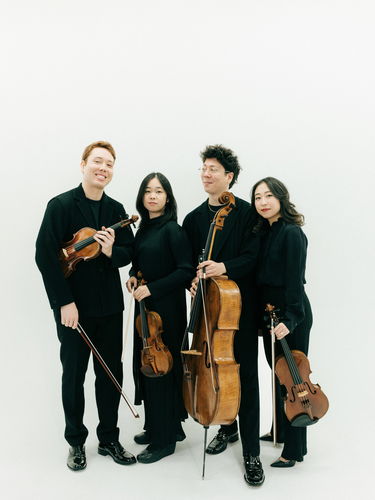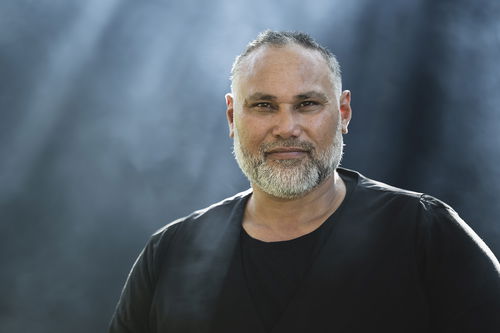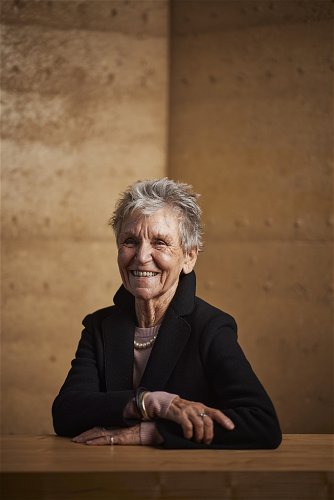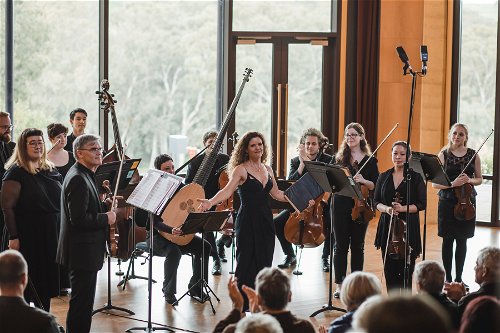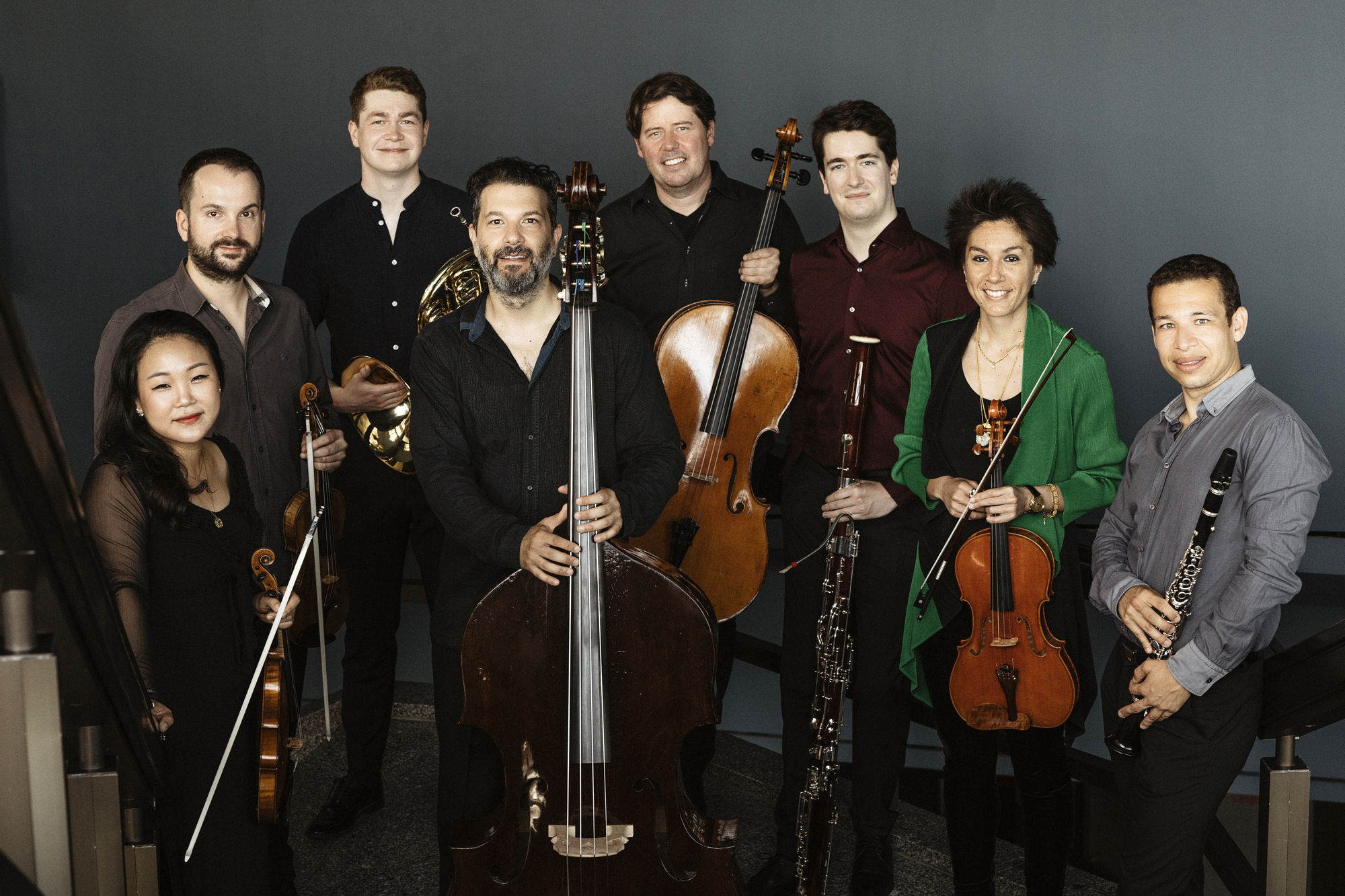
THE RELEVANCE OF CULTURAL TRADITION:
AN INTERVIEW WITH ULRIKE KLEIN AO
BY DYLAN HENDERSON
WEDNESDAY 12 JULY 2023
In just under two weeks, eight musicians from the Leipzig Gewandhaus Orchestra and sixteen musicians from the Australian National Academy of Music (ANAM) will arrive at UKARIA for a series of concerts and masterclasses exploring ‘The Relevance of Cultural Tradition’. This aptly named festival brings musicians from the world’s oldest symphony orchestra together on stage with the next generation of Australian performers, and promises a weekend of exhilarating performances, exchanges and discussions.
The theme of this festival is particularly significant to our Founder, Ulrike Klein AO, who established UKARIA to inspire people through culture. Following celebrations for her 80th birthday in June and a recent trip to Europe, Ulrike reflects on the role of music in her life, the German traditions that have shaped her, and what it was like to experience KLASSIK underground in Leipzig for the first time.
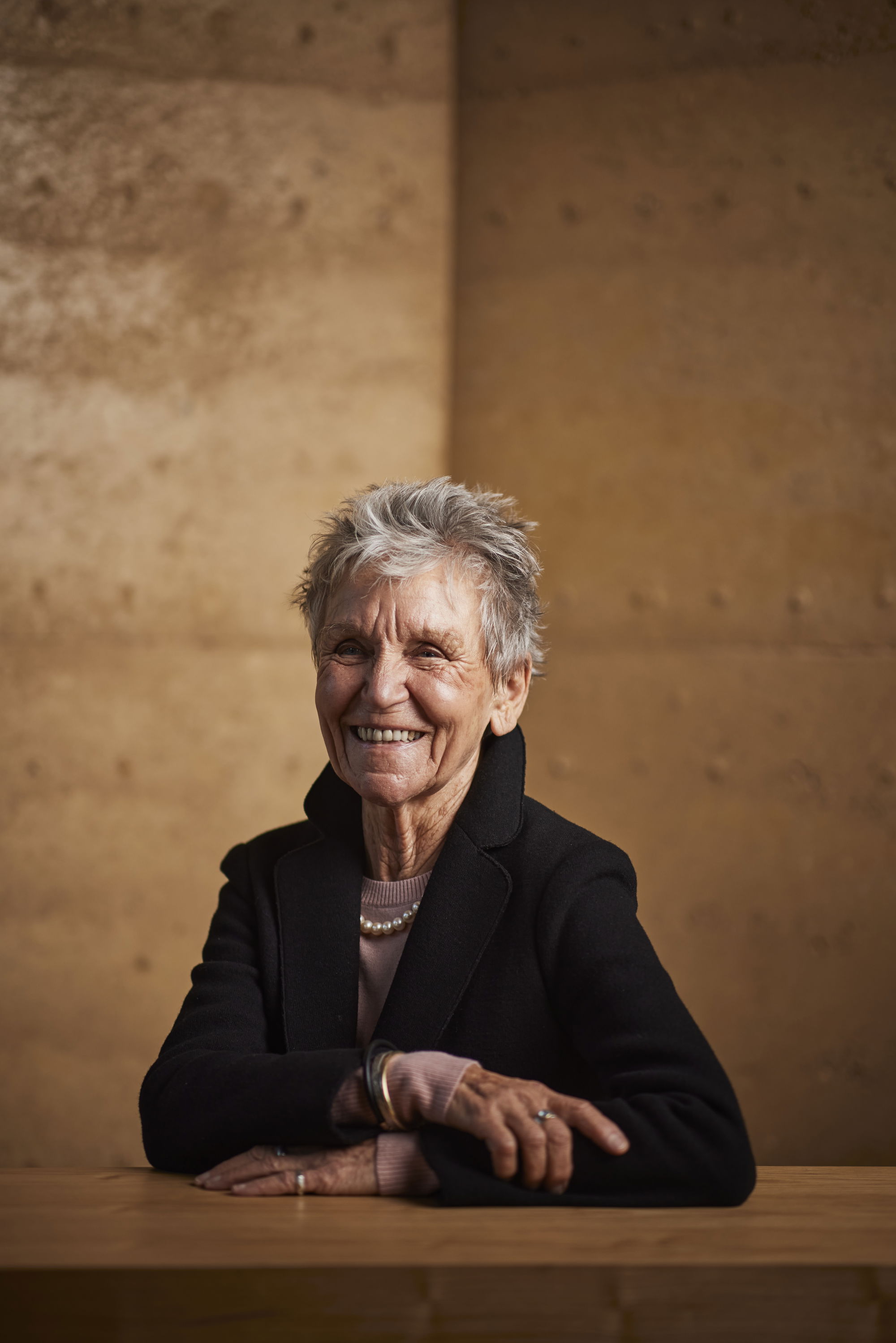
This year you not only celebrated your 80th birthday, but you also celebrate 40 years of living in Australia. Having spent half your life in Germany, and half in Australia, what stands out to you each time you go back to Europe?
For me, it’s the richness and the prevalence of history, and how that is present in buildings, in the way people are engaging in conversations, and how dominant the tradition of writing and literature is in Germany.
When I go back to Germany, I love to visit cities which carry that tradition. I go into churches and cathedrals, and they’re like witnesses of times gone by. And strangely, when I am in these spaces, I hear sounds even when there is silence. So, for me to go back is to reconnect with where my roots are, and the tradition in which I have grown up. That has been very important, year by year, because I often go to different parts of Germany.
In the Southern part of Germany, there seems to be a different culture (in Munich, or in Stuttgart) than if you go to Hamburg. Some of these cities have been influenced by destruction through wars. I love to go into Romanesque and Gothic churches, because for me I can almost imagine listening to music in there. And if I can have an opportunity to hear music being performed in these old buildings, I absolutely love that.
In a certain way, a lot of the culture – be it literature or be it music – is very strongly influenced by the landscape, and the people who live in that landscape. To feel this grounding of where I come from – to have had that exposure to music in my childhood, during my school time – has been important for me over the years since I’ve lived in Australia. I can see how that stream or river running through me has shaped who I am today.
When I come back to Australia, I’m connected to a very different gravitas that is much more informed by nature, in a way. That was very, very strong in the beginning when I arrived. What inspires me being here? And how has 40 years of living in Germany informed what I want to create here? That culture – be it literature, be it architecture, or music – has hugely informed me.
Can you tell us a little bit about how it felt to be in Leipzig, a city with such a rich musical history?
I’ve always been drawn to Leipzig, but I never had an entry into the richness of that cultural life. I've been to Berlin many times, because I was born in an area which is much closer to the Eastern part of Germany. Weimar, Dresden, Leipzig… these cities always had a big attraction for me.
Arriving in Leipzig by train this May, a taxi driver picked us up, and he had a dialect which was very close to the dialect in the village where I grew up. And the sound of his language – even though it was different – straight away brought me back to the thought that ‘this is where I came from’. He seemed proud to be a citizen of Leipzig and was very excited to hear that we had come wanting to hear music here. It was such a contrast: ‘What’s this?’ I thought. ‘Where am I? How is it possible that even a taxi driver has this kind of pride in the culture of his city?!’
I experienced that very often walking through Leipzig. Culture really informs the standard of everything – even shops! Culture, and that tradition of music, elevates the standard of everyday living. Gaining an awareness of the people who go to Leipzig, and the people who live in Leipzig… I found that absolutely fascinating. And then I remembered that the Gewandhaus itself came from the citizens, who wanted a concert hall for their music, because they were proud of the composers who have lived here. The citizens carry this pride and, of course, generosity – and this helps create that very alive cultural life.
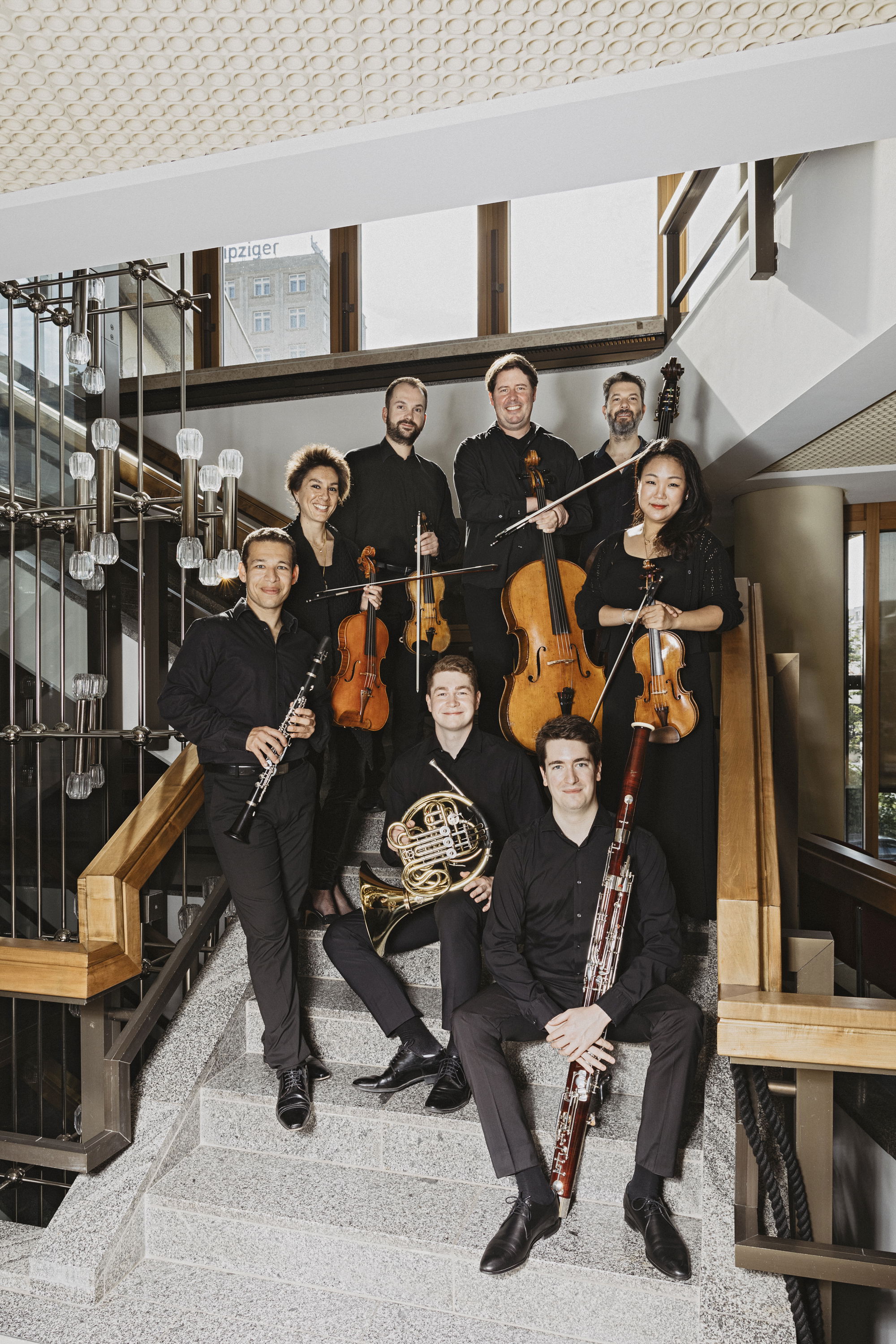
What was it like to experience KLASSIK underground for the first time? Tell us a bit about the venue and the atmosphere there.
We came at a time when the Mahler Festival was on, so there were many large orchestras – even the City of Birmingham Symphony Orchestra was there – performing the Mahler symphonies. But the reason why we went to Leipzig was to experience KLASSIK underground, which we’d seen in Adelaide last year [in the Illuminate festival]. We wanted to understand the roots of KLASSIK underground and experience it in the place where it was born.
The musicians from Gewandhaus and other orchestras had been rehearsing Mahler during the day, had just performed a concert in the evening, and then went next door to the Moritzbastei for KLASSIK underground. The Moritzbastei is truly an underground venue, with a beautiful, vaulted ceiling. There is a bar, so you can get a drink and take it with you. The seating is very informal, very ad hoc, but typically it’s very full: people sit on steps wherever they can find a spot. It’s a culturally rich, urban nightlife, almost like an atmosphere you would experience in a jazz nightclub. The musicians and the audience are very close together. After having played these formal orchestral concerts, the musicians now present classical music in a completely different way, in a relaxed atmosphere. It’s doesn’t have that traditional formality, where you sit in a seat, in a suit. There is a spaciousness and closeness at the same time.
You can hear the music is very well rehearsed. It’s not just a matter of ‘let’s play whatever we can with whatever energy we have left’ – it’s a very, very high standard. Jörg Widmann has been there, Anne-Sophie Mutter has been there, and the next series will be with Pekka Kuusisto. Musicians of this standard are asking questions about new ways to present music and connect to audiences. This combination of bringing the tradition of classical music into a new way of presenting it in our time… I found it fascinating. It was fantastic to experience that in the place in Leipzig where it was created by Tahlia.
And for us, the thrill was that in some of these concerts, we could hear some of the musicians that will be coming to Adelaide to perform at KLASSIK underground in the Dom Polski Centre, and of course at UKARIA. The whole idea of bringing that tradition embodied by the Gewandhaus Orchestra to Australia was to bring together these two streams of my life, and bring them together into a space like UKARIA, where we have created something which wants both to hold traditions and bring them into the future. I see UKARIA very much as holding the possibility of discovering new ways of presenting music, of integrating classical and non-classical genres into a single space that can hold it all together.
Some of the musicians from the Gewandhaus Orchestra (and, more specifically, from KLASSIK underground) are coming to UKARIA in just a few weeks’ time for a weekend of concerts. What were these artists like in person and what was it like to get to know them?
I can give you a few examples. There was a clarinetist who was so full of life. His name is Eddie [Edgard Hesske]. I just loved the way he played, and I learnt later that Eddie will actually come to UKARIA, to Australia. And then there was Karl Heinrich Niebuhr – a very different personality, a very serious gentleman. He carries all of that Leipzig tradition within him. And of course, we met Tahlia, who brings all of these musicians to us at the end of July.
We met quite a few of them for coffee, and for me it was fantastic to meet these individuals in person, and to see how seriously they take the task of bringing this tradition to Australia, and to UKARIA, and how they feel about working with the musicians at ANAM who will come at the same time. One of them, a cellist – Axel von Huene – was full of curiosity. ‘Where do we go? What is Adelaide like? What can we expect?’ Meeting them in person and having coffee together helped bridge that gap a bit. And what I found absolutely fascinating is that they were all so excited that they have already started rehearsing the program together. So, for them, it’s a big deal to come here, and they’re taking it very seriously.
The weekend has a very strong educational background behind it, too, with these world-class international musicians working with the next generation of Australian musicians from the Australian National Academy of Music. ANAM is an organisation you’ve supported quite a bit over the years. How important is it for UKARIA to be able to provide opportunities such as these?
It's very important for UKARIA. There are traditional ways to do masterclasses and education, where you have a master or masters and musicians playing for them, and that’s it. Hopefully (and I’m sure we’ll find this), with the ANAM musicians performing alongside musicians from the Gewandhaus Orchestra, there will be much more – the musicianship of these Gewandhaus musicians can be transferred on a more personal level. It’s not just about technique, of course, it’s also about sound. One thing the Gewandhaus musicians are known for is the special sound that they create. They’re very passionate about how they support each other to create that very special ambience and expression through music. And that, I believe, will be something that the ANAM musicians will be exposed to over several days. It’s similar to our experiences earlier this year having The Gesualdo Six in residence at the A Cappella Academy. It’s not the master just telling the students what to do, it’s about listening together, and exploring together, in a completely immersive way.
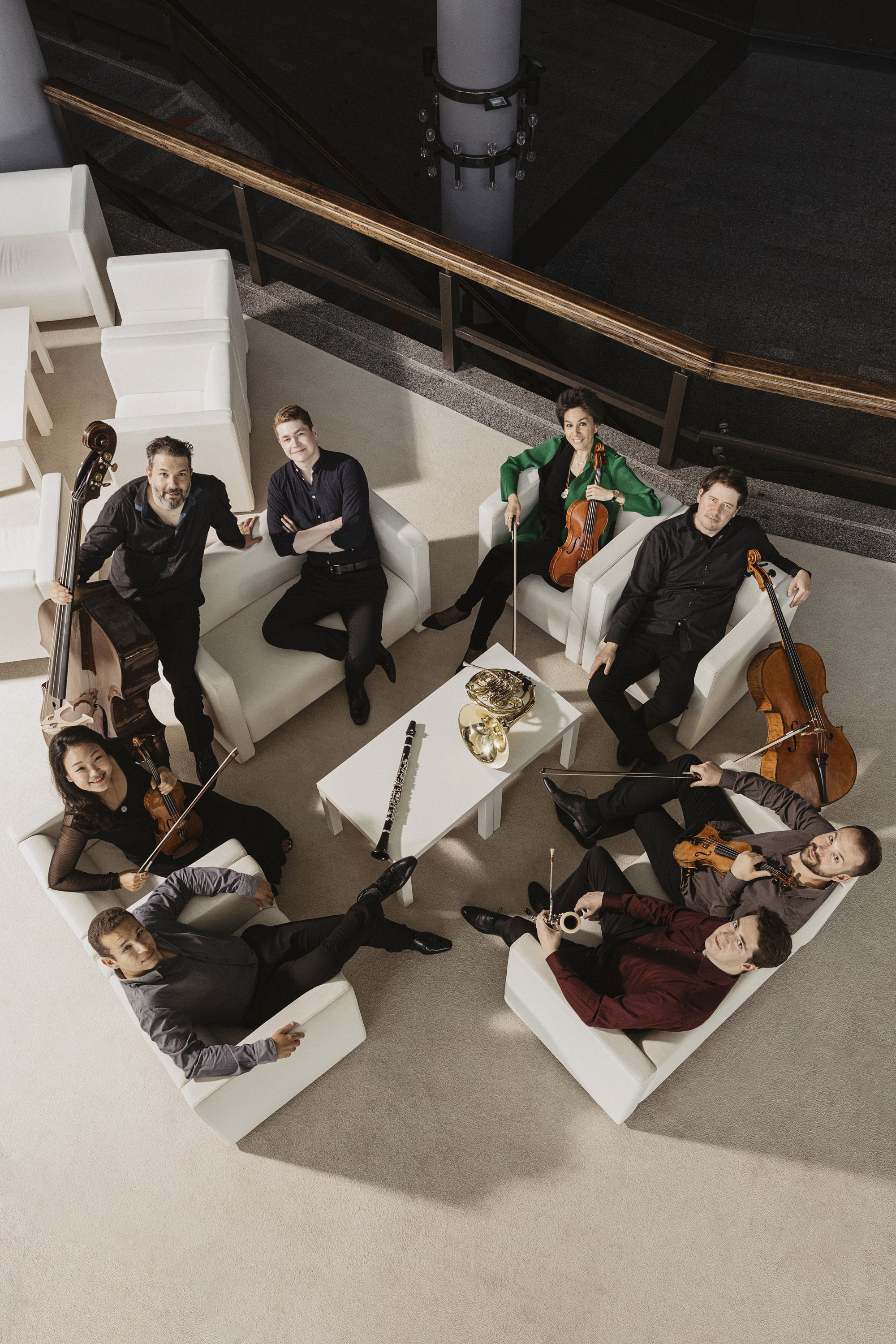
What does ‘Cultural Tradition’ mean to you, and how relevant do you think it remains to the current world we live in?
The world we live in has an incredible opportunity to embrace and be curious about the very different musical, historical and cultural traditions that we have. I am very fortunate to have had exposure to Indian music: I met a master of the sitar and tabla, and through him, I gained an insight into that very different culture and sound world. If you think about the sound of the Chinese fiddle (the Erhu), it has a very particular kind of sound, a different tonality. There’s this yearning that comes out of the origins of Chinese culture, being expressed through music.
We’ve had quite a number of representations of these different cultures at UKARIA. Think of the jazz weekend we had last year with James Morrison: he invited Bobby Singh and Cieavash Arean, who introduced us to new sound worlds. It’s the soul of a country, of people, expressed through the sound of music and those instruments. Through that we can actually understand each other and the differences of culture. You become open minded by listening to the music, because it’s a language without words we can all understand.
William Barton is another wonderful representative. When you hear his singing, his playing, it’s beyond words – it makes you understand. Gurrumul is another artist who is dear to me. Aboriginal tradition is so different, it’s so rich – again, beyond words. But listening to these artists, and their artistic representations of their culture, brings me a little bit closer to understanding it.
Think of Joseph Tawadros: he presents the culture he comes from in a very different way, but listening to him, I get a good understanding of the colours of that culture that lives through him. I can study the history, but that’s intellectual. The music of these artists penetrates me in a different way, and I have a glimpse of understanding.
Yes, that’s a beautiful way of putting it. And so, for you, these musicians from the Leipzig Gewandhaus Orchestra embody the tradition, the culture, that shaped you?
Yes. To me, Leipzig represents this musical tradition which has informed me. Inviting musicians from the oldest orchestra in Germany to play with Australian musicians is like having both streams of my life together. And that informs the program very much as well: it’s not Australian music, it’s not contemporary. It’s very much part of this European classical tradition. It’s not that this is the only culture or musical tradition that is important to me or that I value, but to bring that to Australia and offer that to the audience – that sound, that origin from which they play – is very important to me, to let both these streams of my life come together for a weekend at UKARIA.
Musicians from the Leipzig Gewandhaus Orchestra and ANAM perform at UKARIA from Friday 28–Sunday 30 July.
BOOK TICKETS

